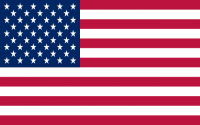U.S. Ratification of the Law of the Sea Convention

The author argues that UNCLOS is a priority for both the U.S. and the international community and that U.S. ratification will be a clear indication that the U.S. is still willing to play an international leadership role in the Trump administration.
Quicktabs: News
Given that the United States has not ratified UNCLOS, U.S. nationals may not serve as members of the Commission on the Limits of the Continental Shelf. It is not clear whether the United States, as a non-state party, can even make a legally recognized submission to the commission to assert its claim and fully protect its proprietary rights and energy interests. In contrast, Russia, which may be entitled to almost half of the Artic region’s area and coastline, has already made its submission for vastly extending its continental margin, including a claim to the Lomonosov Ridge, an undersea feature spanning the Arctic from Russia to Canada. Russia and Canada are the two countries with which the United States has potentially overlapping extended continental shelf claims.
This maritime boundary dispute is no small matter. The U.S. Geological Survey estimates that the Arctic holds 22 percent of the world’s undiscovered oil and gas, amounting to more than 412 billion barrels of oil equivalent. Legal certainty in maritime delimitation is critically important for Arctic states and their respective energy companies. On June 8, 2012, Rex Tillerson, as chairman and CEO of ExxonMobil, wrote to the Senate Foreign Relations Committee to vociferously urge U.S. accession to UNCLOS:
“Perhaps the best example of the need for certainty in an area with great unexplored potential involves the Arctic Ocean…Several countries, including the United States, are provided with a claim to extended exploitation rights under the application of UNCLOS in the Arctic. The legal basis of claims is an important element to the stability of property rights.”
In the absence of treaty ratification, Tillerson noted that the United States suffers from the dual disadvantage of having both a cloud over the international status of U.S. claims and a weakened ability to challenge other states’ conflicting claims.
The South China Sea is another area of heated contestation where UNCLOS serves as the guidepost for clarity. Of notable importance is the ruling from the South China Sea arbitration that UNCLOS comprehensively allocates rights to maritime areas thereby precluding historic claims like China’s “Nine-Dash Line.” From this principle, the arbitral tribunal systematically refuted China’s extensive claims and actions in the South China Sea beyond the treaty’s carefully crafted limitations. In the view of Washington, these limitations include undue attempts to curtail the freedoms of navigation and overflight in exclusive economic zones (EEZs). Notably, China takes an opposing view and asserts the ability to prohibit foreign military operations in its claimed EEZs. Thus, although the United States remains neutral on competing claims in the South China Sea, Washington has a compelling national security interest in upholding the substance of the arbitral tribunal’s ruling.
Like U.S. claims in the Arctic, the United States’ legal rights in the South China Sea are not academic. As reported by Ronald O’Rourke, a U.S. naval affairs analyst, the EEZ legal dispute between Washington and Beijing has led to significant confrontations between Chinese and U.S. ships and aircraft in and above international waters. For example, in August 2014, a Chinese J-11 fighter dangerously intercepted a U.S. P-8A Poseidon, a naval reconnaissance aircraft, operating in the South China Sea approximately 117 nautical miles east of Hainan Island. Thanks to the arbitral tribunal’s artful debunking of the nature of Chinese-claimed maritime features and related entitlements, there is greater legal clarity on U.S. operational rights in the South China Sea. By formally joining UNCLOS, the United States will be in a stronger position to support the ruling of the arbitral tribunal in the face of Chinese opposition.
More broadly, the UNCLOS regime is part of the bedrock of the U.S.-led liberal order. As G. John Ikenberry argued in After Victory, since the Congress of Vienna, leading states have employed institutional strategies as mechanisms to establish restraints on arbitrary state power and embed a favorable and resilient international system. In this instance, the Convention and 1994 Agreement were negotiated during a time of U.S. ascendance and Western unity in international affairs. At ASIL, Myron Nordquist, Associate Director of the Center for Oceans Law and Policy, expounded on how UNCLOS reflects important U.S. interests regarding restraints on economic exclusive zone, continental shelf resources, innocent passage across the territorial waters, the passage rules for transiting straits and archipelagic sea lanes, and, of course, the high seas freedoms. U.S. ratification will serve to “lock in” these advantages, negotiated by the United States from a position of primacy in world affairs.
-
U.S. ratification of UNCLOS would boost its leadership standing in a couple of ways. First, by acceeding to the treaty, the U.S. would immediately be able to participate in the discussion around the future of the treaty and participate in maritime forums that it had previously been locked out of. Secondly, by ratifying the treaty, the U.S. would improve its soft power by showing more of a willingness to cooperate multilaterally.
Keywords:Related Quotes:- Ratification of the convention is key to U.S. foreign policy objectives and leadership
- U.S. ratification of UNCLOS necessary for resolving conflicts and showing leadership in Asia-Pacific region
- Ratification of convention key to U.S. soft power leadership
- U.S. Ratification of UNCLOS would show U.S. willingness to work multilaterally and strengthen our partnerships
- ... and 10 more quote(s)
